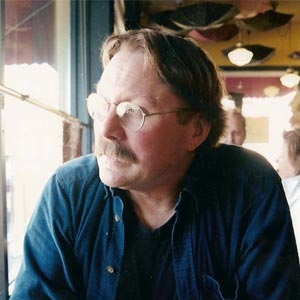by James Grabill
FIVE O'CLOCK SHADOW
LATE AFTERNOON, ALMOST EVENING,
and the sun’s descending
on empire. This time the weight
has been sinking in, pitching
shadows in lengthening dark
pools that gradually overflow
with night. So the spired nucleus
sprouts. The seed for a white oak
prepares in the marrow of roots
and branches. Waves transpire
out of capillary lift through open
air, holding the thick trunk
in cosmic flux. Soon, Mandelbrot
geometry stands at the front
of the fractal boat. An amber moon
swings over the horizon holding
still at the end of its pendulum
pounding the coast, erasing more
parts of the future from the past.
It’s the next hour that arrives,
bending over Earth, rounding off
solar spreads from each point
of solid matter and events
that remain to be announced
to the fully packed house.
THE HOUR
Where we happen to be at this time, in the middle
of it, may be the center of the world Black Elk said
was everywhere. Within every split second, minutes
and years reside, within each gravitational molecule,
at each point of spatial being, however inundated
with heavy rail, excitation, momentum, unspoken
regret, however swamped, dusted off, or hopped up,
wrapped around or watered, perfumed or electrically
discharged or rededicated, however rendered aging
in abstinence or parthenogenic joy. This is the hour
that has been in whatever ways imbued with ballistic
altruism beside ambitious tragedy, unequal and yet
identical as we are, standing up, sitting down, sitting
up, or standing down like anyone with a quick chance
to be here, teleported live by the exquisite complexity
of cells allowing mind to grow humble in the ecosystem
body, at the crux of becoming, at the petrol intersection
of more than we know. It’s the hour we couldn’t know
without science around a shaman flash of gourd-shaken
fact, the starlight planted in cells, seeds with wildlands
within them, with tropical canopies of microorganisms
inside the eyes, fluid-pumphouse organs, and ball joints,
the bone foundries and mid-Cenozoic forests that once
preserved us, that still hold us at night on their limbs.
JAMES GRABILL’s recent work appears in Caliban, Harvard Review, Terrain, Mobius, Shenandoah, Seattle Review, Stand, and many other places. Books include: Poem Rising Out of the Earth (1994), and An Indigo Scent after the Rain (2003) from Lynx House Press, and the environmental prose poems, Sea-Level Nerve: Books One (2014) and Two (2015) from Wordcraft of Oregon. For many years, he taught all kinds of writing as well as “systems thinking” and global issues relative to sustainability.

